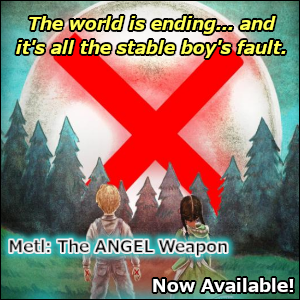I’ve said them, you’ve said them, we’ve all said them.
Let’s discuss the top 8 bad excuses writers give for bad writing!
During the last stream, the subscribers voted that we go over bad excuses for bad writing.
Watch what we did here, or scroll down for highlights.
Top 8 Bad Excuses for Bad Writing
- Writing can be stressful, and sometimes when we’re getting negative feedback on our work or feeling discouraged, it can be tempting to come up with excuses
- But! Those excuses are almost never good, and they only hold us back from doing better
- So let’s go over the top 8 bad excuses for bad writing that I’ve personally heard, so that we’ll know to do better when we accidentally say them ourselves
#8. “It’s just for KIDS!”
- First of all, kids are far more judgmental than adults: if you’re writing a story for kids, then it has to be better than an adult story because kids will show no mercy
- Second, kids have shorter attention spans than adults: if you’re writing a story for kids, it has to be less complex than an adult story because kids will stop caring
- Finally, we insist on everything else being better for kids like food, toys, safety, etc. so why would we be okay with giving them bad stories?
*Example: You wrote a children’s story, and adults give you feedback saying it’s boring. Instead of using the lame excuse, “it’s just for kids!” instead find ways to make it fun, because children will be HARSHER.
#7. “I’m just writing it for MYSELF!”
- Unlike other hobbies like gardening, cooking, or drawing, writing is very hard to judge ourselves
- The reason is because with the other hobbies, you can easily see/taste what you’ve created, but with writing, your brain might be filling in things that are not actually on the page
- Writing, more than other hobbies, requires other people to interact with what you’ve created, in order to see if what we’ve created is clear
- While it’s possible to just write for yourself, if you say this excuse to someone, that means that you’ve shown your writing to them, so….
*Example: You wrote some My Little Pony fanfiction for fun, shared it online, and got a lot of negative feedback. Instead of using this lame excuse, instead take a deep breath, listen to the feedback others give you, and incorporate it into your writing. It will hurt, but it will only make your writing better
#6. “It’s SUPPOSED to make you feel confused/tired/angry!”
- This is applicable to a lot of different things: sections of a story that are purposely written weird, or purposely written to be long run-on sentences, or purposefully written in a frustrating way that doesn’t make sense
- You might think you’ve accomplished your goal if the reader is confused/tired/angry while reading it, but you likely haven’t
- Most of the time, you want the emotion from your writing to come from the STORY, not the STYLE
- It’s like how a good piece of art makes you feel pain by what it conveys, not by physically punching you in the crotch
- Poetry can get away with this a little bit, but not usually in longer prose. Remember, people read for fun, and if they’re not having fun they will put down your story and do something else
*Example: You’re writing a scene where a character is running away from people chasing after him, and you purposefully write it in a confusing/exhausting way, since that’s how the character feels. Rather than thinking “oh cool,” instead most readers will just either skip it or stop reading.
#5. “But that’s how it REALLY is!”
- Whenever you’re writing about something you’ve personally experienced, it’s important to remember that other people won’t have had the same experience as you
- Even if you’re writing about something that actually happened to you, you need to make sure that you write it so that it FEELS real, not just IS real
- Remember, the biggest difference between reality and fiction is that fiction has to make sense
- Authors have convinced readers of everything: that magic is real, dragons are real, aliens are real, you can definitely convince people that what you’ve experienced is real too, without resorting to excuses
*Example: You’re writing a story about a character who is bullied, but you get feedback that the bullies seem too harsh, even though it’s exactly what you experienced in school. Rather than arguing with the readers, look at your story and see if there are ways to edit it so the intense bullying feels more real. Perhaps by establishing the characters more, showing their relationships more, having it build up more slowly, etc.
#4. “It’s not FOR you!”
- Now we’re getting into the juicy ones, what writers say when they’re really getting desperate
- Maybe you wrote a romance story or a sci-fi story, and you gave it to someone who doesn’t like romance or sci-fi, and they have some criticisms of it resulting in this response
- It can be tempting to wave away their negative feedback by saying “it’s not for you,” but that’s not usually a good idea
- You want to really listen to the TYPE of feedback you’re getting: if it’s related to the genre, then maybe you can ignore it, but if it’s related to the story, then definitely listen
*Example: You wrote a sci-fi story and gave it to a friend who doesn’t really read sci-fi. They give you feedback saying that the made-up sci-fi words were confusing, and she didn’t understand why the main character was fighting the aliens. Instead of throwing out all her feedback, you definitely want to pay attention to what she said about your character’s motivation and make it clear, though perhaps you can keep the sci-fi words.
#3. “You just don’t GET it!”
- No, we DO get it, Carol, your story just sucks
- When writing a story, it’s up to you the writer to help the reader understand what you want to convey, it’s not up to the reader to go through hoops to get it
- Of course you can have subtext, symbolism, allusions and more in your story, but you need to make sure that they’re clear, and that the base story itself is satisfying
- If the base story is boring, readers won’t care about the extra stuff, so make sure you have a solid plot/characters first before worrying about the symbolism/commentary bells and whistles
*Example: You wrote a story and everyone you’ve given it to for feedback doesn’t understand it. Is there a chance that you’re simply the next James Joyce, and your work is simply too profound to be understood? Sure. Just like there’s a chance that you’re secretly a great chef even though everyone you’ve ever cooked for has gotten food poisoning.
#2. “It makes sense LATER!”
- The bane of every writer’s existence, and something we’ve all said at some point, myself included
- When we’re writing a story, we have the whole thing in our heads: we can see the characters, the setting, and we know what’s going to happen next in the plot
- But when someone is reading a story, they only have the words on the page, and if something doesn’t make sense the moment they read it, they’ll be confused and potentially stop
- Even if something that’s confusing in chapter 1 has a fantastic payoff in chapter 10, if the reader stops reading at chapter 1 then they’ll never get there, so have it make sense in the moment
*Example: In chapter 1, a high school character who is half-alien uses her powers at a party, to mind control a drink to spill all over someone she hates. But you don’t explain the powers or say that she’s an alien, because you want that to be a surprise twist in chapter 5. Chances are, readers won’t care about that twist, if they even make it that far. They’d be much more interested in just knowing she’s half-alien from the start.
#1. “But I worked really HARD on it!”
- Ouch, this one breaks the heart of everyone involved, listener and writer both
- For many people, writing stories is their first taste of the harsh reality of the creative world: no matter how hard you work on something, there’s a good chance people won’t care
- How much a reader likes a story has nothing to do with how much effort you put into it, it has everything to do with how good the story is, whether it was written in an hour or a year
- Crafting a good story is hard work, and getting criticism to make your writing better is a part of that hard work too.
- So if you find yourself saying this, you may THINK you worked really hard, but chances are you simply haven’t experienced how hard it really is to write a good story yet
*Example: You spent a year writing a novel that you’re super proud of and you show it to your friends/family… who all read half of chapter 1 then stop. You worked really hard to write that book, yes, but that’s only PART of the hard work. Getting feedback, incorporating it, and gutting/cutting your story is the OTHER hard part you haven’t done yet, so scream into a pillow and get editing!
If you want to join us and help write a story by trolling in chat, or share your own writing for feedback, then we’d love to have you join us on Twitch.
And you missed the stream, you can still watch them on the YouTube channel or watch the full stream reruns.
Hope to see you next time, friend!
 Featured image: Pakutaso
Featured image: Pakutaso
